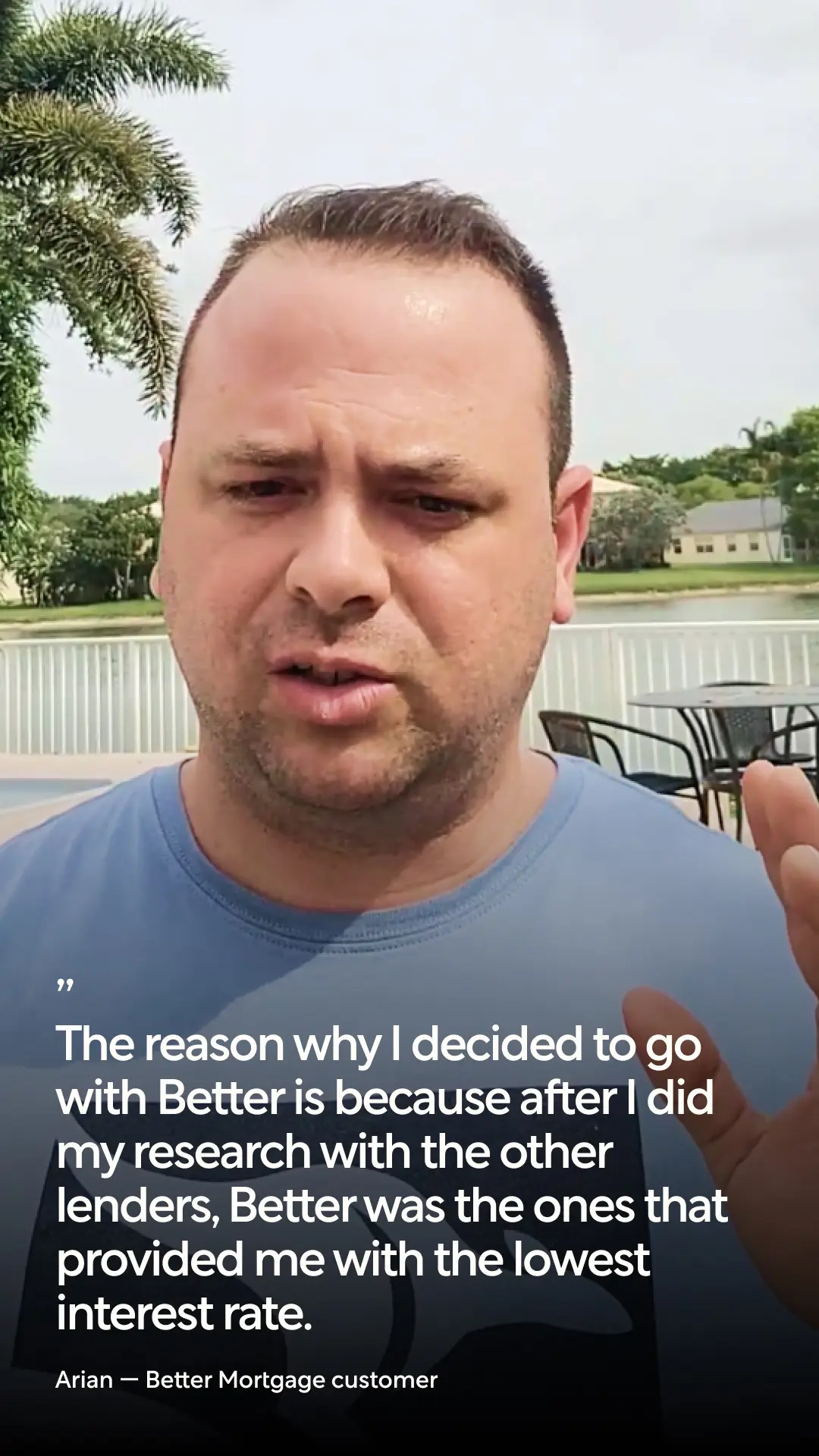Mortgages
made simple

Got questions?
We've got answers
Buying your first home with Better

One Day Mortgage1
Kick your home loan into hyperdrive. Going from locked rate to Commitment Letter takes weeks for traditional lenders. We do it in a single day. Traditional lenders deliver a Commitment Letter in a few weeks.1

Better HELOC
Introducing One Day HELOC™—your express lane to getting cash from your home with our Home Equity Line of Credit2. Access up to 90% of your home equity as cash in as little as 7 days.3

Insurance

